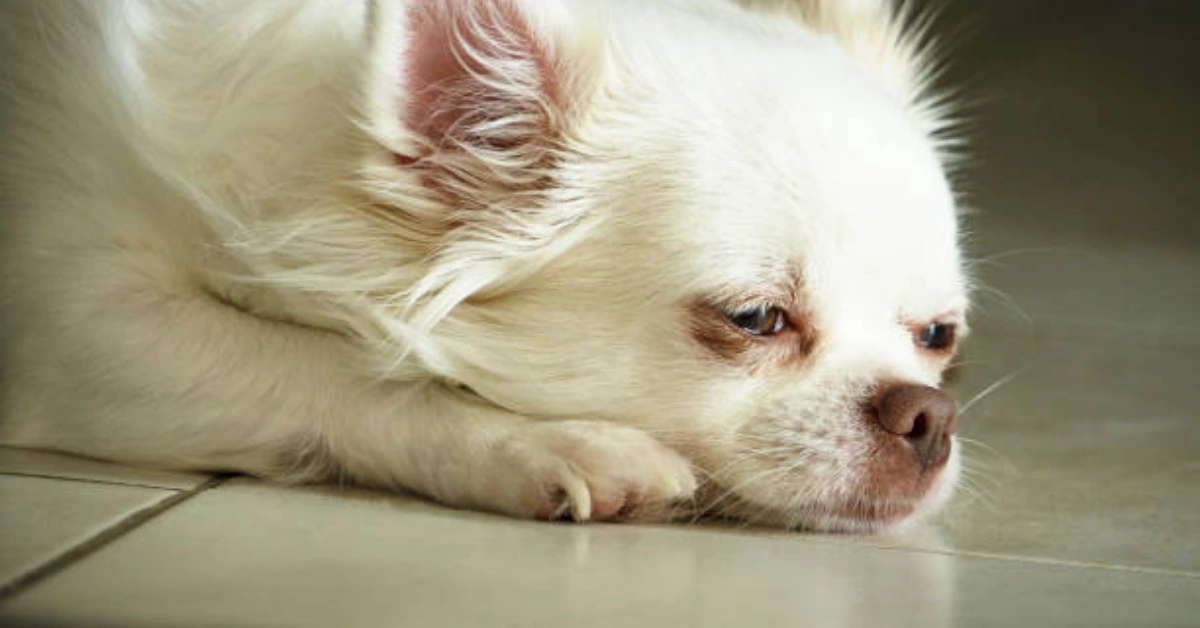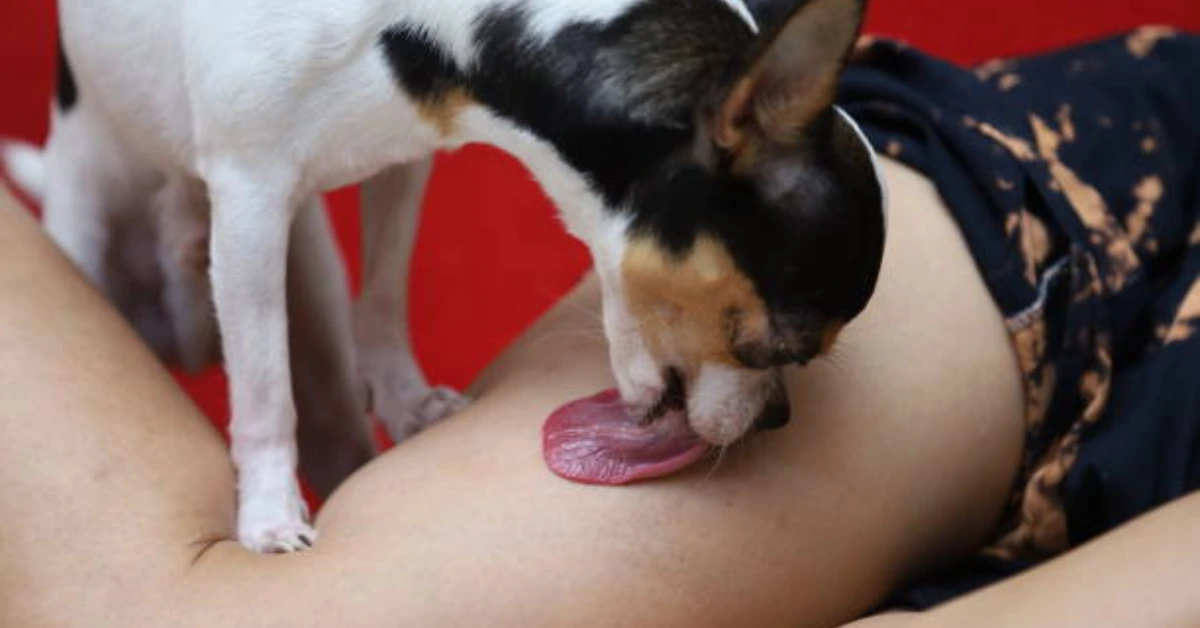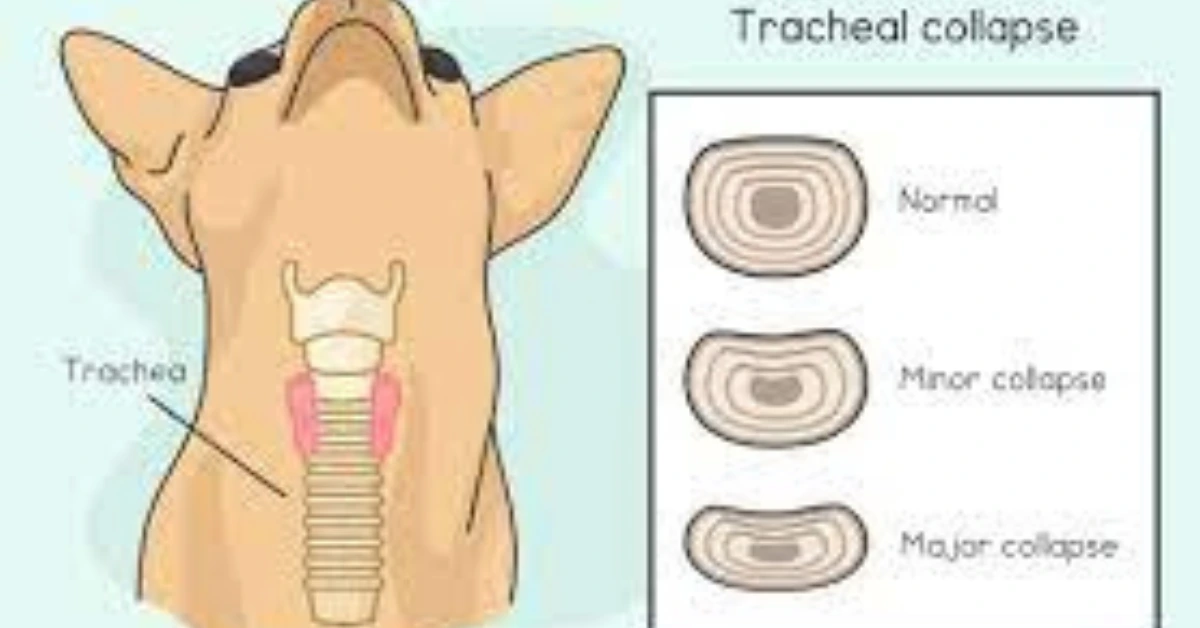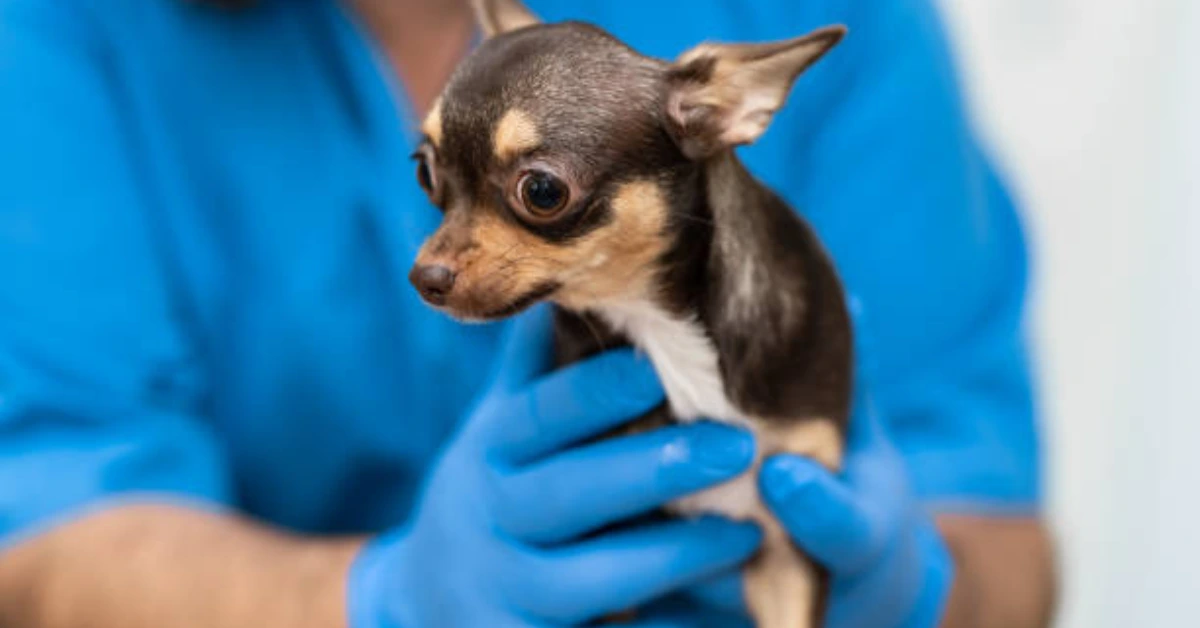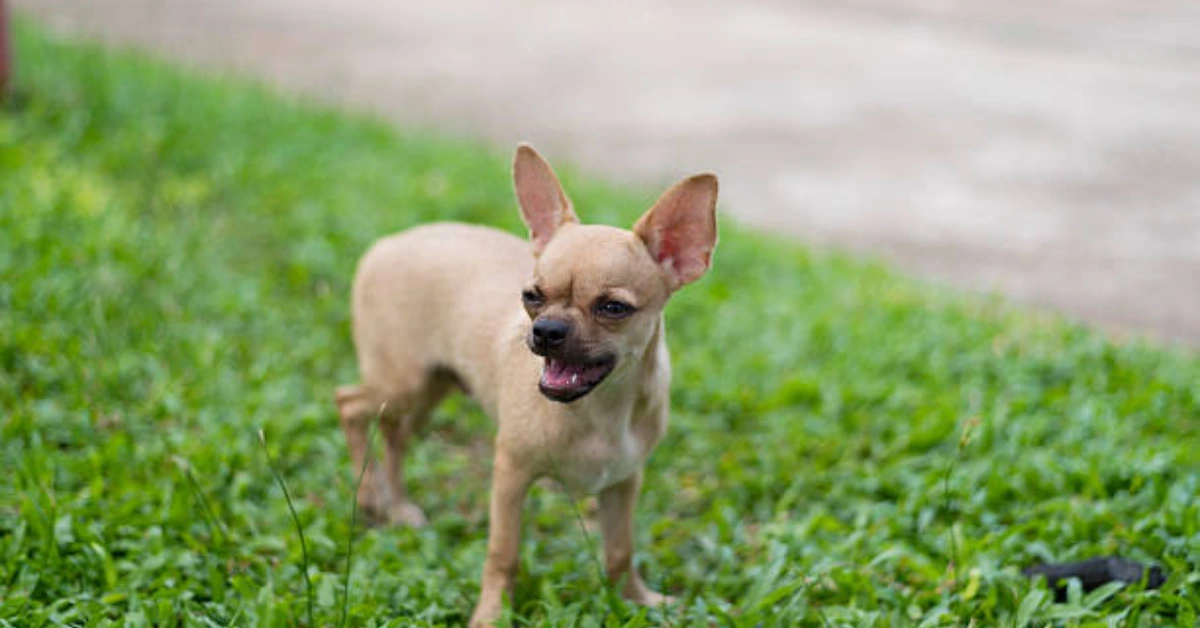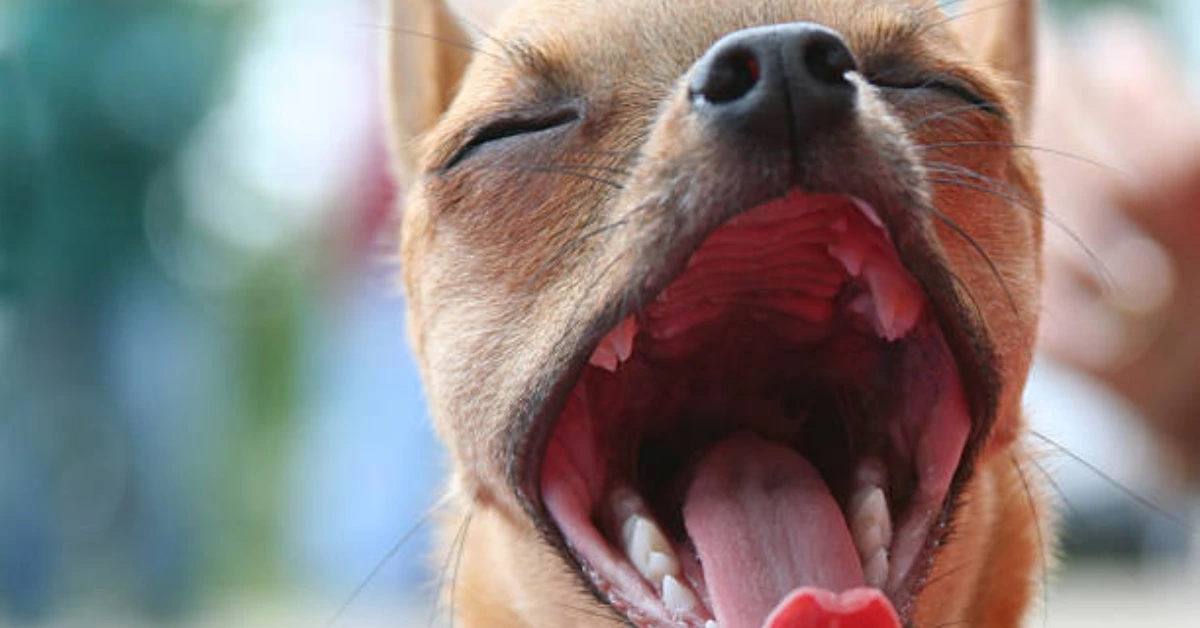Chihuahuas are known for having health problems, especially seizures that happen often.
In 2009, the Chihuahua Club of America did a health poll and found that 45% of the people who took part had either bred or owned a Chihuahua that had seizures of unknown cause. Fans of the breed are worried about the future of the breed because of this scary fact.
The Definition Of Seizures In Chihuahuas
A seizure in a Chihuahua is like a seizure in a person in that nerve activity in their brains happens quickly and out of control.
Advertisement
This makes the muscles contract on their own, which can lead to strange behaviors like staring off into the distance or making the same moves over and over, as well as full-body convulsions.
Chihuahuas can have seizures in many different ways, such as by collapsing, jerking, twitching their muscles, and losing awareness. A chihuahua may also drool, chew their tongue, or make foam at the mouth.
Chihuahuas may fall to the side and paddle their legs during a seizure, and some may even lose control of their bowels or bladders. Before the event, Chihuahuas may look confused or look off into space. After the event, they may be disoriented, temporarily blind, or walk in a strange way.
A lot of dogs also drool too much. Keep an eye out for things that could cause seizures and talk to a vet for more help.
What should I do when my Chihuahua has a seizure?
Find out how to stop your Chihuahua from having seizures:
- During a seizure, it’s important for your Chihuahua’s health that you stay calm. Focus is important, even though it may be hard.
- When your Chihuahua has a seizure, it’s important to keep track of the time. This will help your vet figure out what’s wrong with your Chihuahua. If you can, ask someone to use their phone to record the seizure so you can show the vet what happened.
- You can be sure that your Chihuahua is not aware or in pain, despite any actions or noises that might make you think otherwise.
- Despite what most people think, Chihuahuas and people don’t swallow their tongues when they have a seizure. It’s important not to try to grab their tongue because if you do, they might bite you.
- If your Chihuahua has a seizure, keep him away from the stairs, put a pillow under his head, and hold him gently until he wakes up.
- Chihuahuas often pee or go to the bathroom during a seizure, but this doesn’t make the seizure worse in any way.
- Chihuahuas can get too hot if they have seizures that last longer than two to three minutes. Apply cold water or wet cloth to your Chihuahua’s groin, neck, paws, and head to help, but get it to a vet as soon as possible.
- Even if your Chihuahua seems fine after a seizure, you should call your vet or an emergency doctor right away.
- Write down when your Chihuahua has a seizure in a notebook or on your phone. Write down the time, date, and length of each seizure. This will help your vet figure out if there are any trends to your dog’s seizures.
- Your Chihuahua is having “cluster” seizures if it has more than one seizure in 24 hours. This is something that needs to be looked at right away by a vet, so you should take your Chihuahua to one right away.
The Parts Of Seizure Activity In Chihuahuas
Seizures usually go through three stages, but there is no set amount of time for each stage. It’s important to remember that each phase is different and that once phase three is reached, the seizure is over.
1. Aura Stage
Chihuahuas may show signs of an upcoming seizure in the first stage, we also called it the “aura” stage. Some of these signs are being restless, anxious, clingy, crying, shaking, and hiding.
2. Ictal Stage
The second stage is the seizure itself, which happens in the ictal stage. Depending on the type of seizure, your Chihuahua may make noise, bite down, or lose control of their bladder or bowels.
3. Post-Ictal Stage
Your Chihuahua may go through the post-ictal stage after having a seizure. During this time, they may seem confused, tired, or less interested in you. This can last anywhere from a few minutes to several days.
Causes Of Seizure In Chihuahuas
There are various causes of this condition in chihuahuas including:
Hydrocephalus
Hydrocephalus, also called “water on the brain,” is a disease that affects many small dogs, like Chihuahuas.
It happens when cerebrospinal fluid builds up in the brain space in an abnormal way. This can cause slow growth, tiredness, stumbling, and seizures because the pressure on the brain is too high.
Hypoglycemia
Hypoglycemia can happen to young Chihuahuas if they don’t eat often enough and their blood sugar levels drop too low. This is because they have fewer fat cells, so they can’t store as much energy.
Genes
Chihuahuas with genetic epilepsy can have seizures even if they don’t have any other health problems. Some breeds are more likely to get this disease than others.
Portosystemic Shunt
Liver Shunt, which is also called Portosystemic Shunt, is a common problem in small dogs like Chihuahuas.
it’s cause is a blood vessel that goes around the liver. This can stop the liver from getting rid of dangerous toxins from the blood. Most Chihuahuas are born with this problem, which can make them less active.
Seizure In Chihuahuas Diagnosis
To figure out why your Chihuahua is having seizures, the vet will ask you about recent events and look at how likely it is that your dog has been exposed to chemicals or had a head injury.
Electrocardiograms, urine tests, and blood chemistry can be used to rule out system problems and check the health of the dog as a whole. A heartworm test can also be used to find out what’s wrong with a pet. Depending on how bad and how often the seizures are, the doctor may order more tests.
Give your vet as much information as you can about how often and how bad your Chihuahua’s seizures are so that he or she can make a correct diagnosis.
Seizure In Chihuahuas Treatment
Tell your vet about your Chihuahua’s seizure experience so they can treat them well. Keep a record of the seizures and organize it with their other medical information. Usually, treatment needs a background that includes:
- Frequent seizures, which happen more than once every four to six weeks.
- Cluster seizures happen when someone has more than one seizure in 24 hours.
- Severe grand mal seizures that last for a long time.
To treat your Chihuahua’s seizures, your vet will give you anticonvulsant drugs like phenobarbital or levetiracetam. Once your Chihuahua starts taking these medicines, they must keep taking them for the rest of their lives.
Stopping the medicine can make your Chihuahua more likely to have seizures. If you need to switch to a different medication, talk to your vet about your choices and make sure you understand all of the directions.
Last Word
If your Chihuahua shows any of the following signs, it could mean that it is having dangerous seizures and needs emergency medical care right away:
- Fits that last more than a few minutes.
- Seizures that happen more than once in a 24-hour period.
- Your Chihuahua has another seizure before he or she is fully better from the last one.
YOU MAY ALSO LIKE:
Kidney Problems In Chihuahuas- A Complete Guide
Heart Murmur in Chihuahuas: Treatment, And How to Prevent it?
10 Most Common Chihuahua Health Issues
Advertisement







